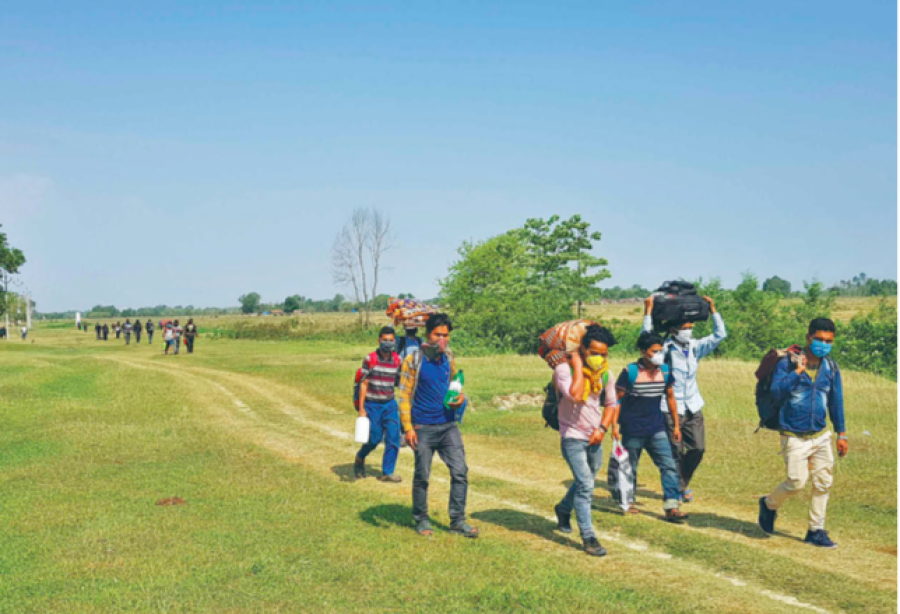Health
Public health experts point at government failure amid projections of spike in cases
Officials estimate that the number of Covid-19 cases is likely to double within a week, ultimately reaching a peak of 20,000 infections and between 400 and 500 deaths.
Arjun Poudel
The number of Covid-19 cases in Nepal has been steadily rising, at a rate of a few hundreds every day. On Wednesday, 201 new cases were detected, following a pattern where the country has reported more than 200 cases every day for the last three days.
Just five days ago, the number of Covid-19 cases was around a thousand and 25 days ago, it was less than a hundred. Currently, the total is 2,300, with nine deaths, and there are no signs of a plateau.
Covid-19 has spread across the country, with 64 out of 77 districts reporting cases.
"Positive cases as well as the number of people in quarantine are rising at an alarming rate," Dr Bikash Devkota, spokesperson for the Health Ministry, told the Post.
But the worst is yet to come, as Health Ministry officials estimate that the number of cases is likely to double within a week, ultimately reaching a peak of 20,000 infections and between 400 and 500 deaths.
“It depends on the number of people entering from India,” Dr Roshan Pokhrel, chief specialist at the Health Ministry, told the Post. “If around 500,000 people come in from India, both the number of infections and deaths will rise.”
As more than two months of a complete lockdown and severe restrictions on all kinds of movement have not stopped the spread of the coronavirus, Health Ministry officials say that they felt the need to revise their infection and death projections.
"It has now become apparent that the government cannot contain the spread of Covid-19,” said Dr Mingmar Gyelgen Sherpa, former director general at the Department of Health Services. “Nor can it treat the patients, as it severely lacks infrastructure, including isolation beds.”
With the sudden spike in the number of cases, isolation beds allocated at various hospitals across the country are full. According to the Health Ministry, 1,624 isolation beds have been allocated to over 100 hospitals across the country.
Authorities are now planning to send Covid-19 patients to quarantine facilities, which are already in a bad shape, before sending them home.
Doctors and public health experts say that converting quarantine centres into isolation facilities and sending people home are both fraught with risks. While people are already fleeing quarantine facilities and even comitting suicide, those who are sent home could spread the disease among their families and communities.
"The capacity and working style of the government have been exposed in the last three months. Positive cases and deaths will increase if the government fails to change its working style,” said Sherpa. "People are dying in quarantine because there are neither doctors nor nurses to monitor them.”
In the months since the lockdown came into force, the government has neither increased the number of isolation beds nor improved quarantine facilities. Public health officials have accused the administration of squandering the opportunity provided by the lockdown.
"The government has made no preparations,” said Dr Senendra Upreti, a former health secretary. “The authorities should have invested more time in studying the shortcomings and correcting them.”
An official at the Health Ministry blamed lack of coordination among the concerned agencies for the exponential rise in the coronavirus cases.
"No one is following the guidelines prepared by the ministry, nor is anyone fulfilling their responsibilities," said the official on condition of anonymity for fear of retribution. "Every agency including the Health Ministry is trying to pass their responsibility on to others."




 18.12°C Kathmandu
18.12°C Kathmandu















